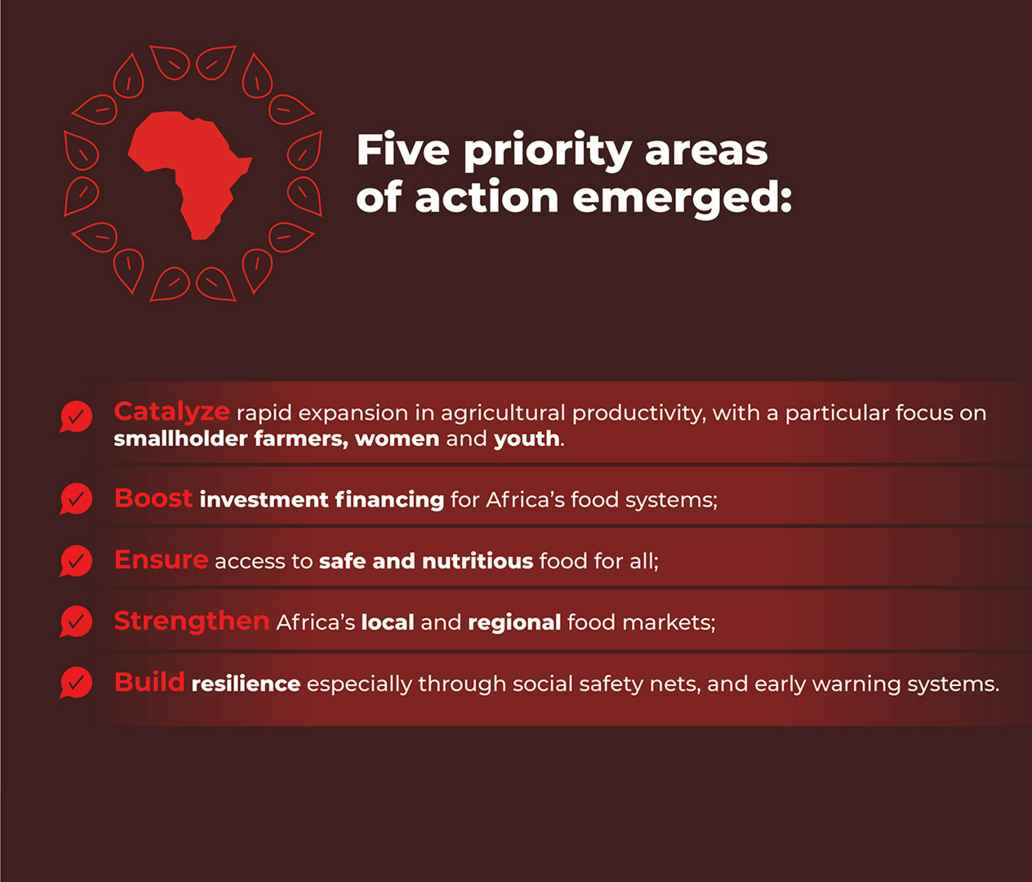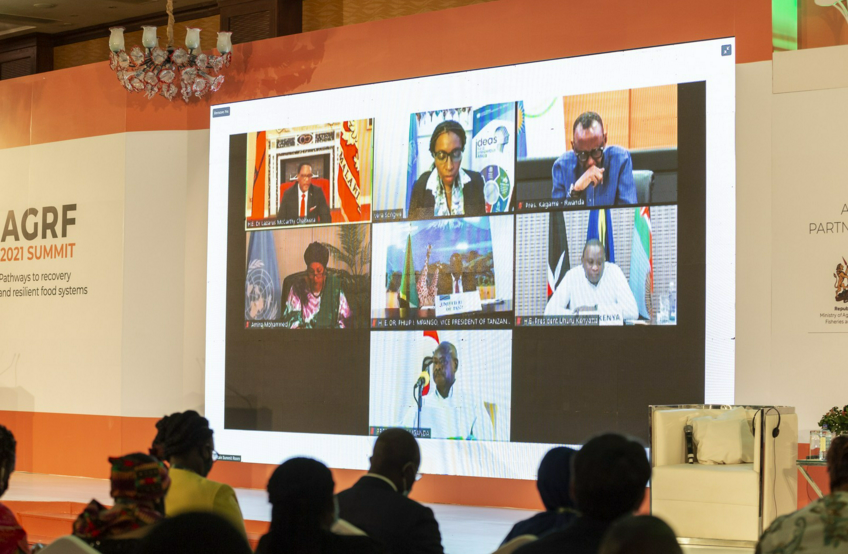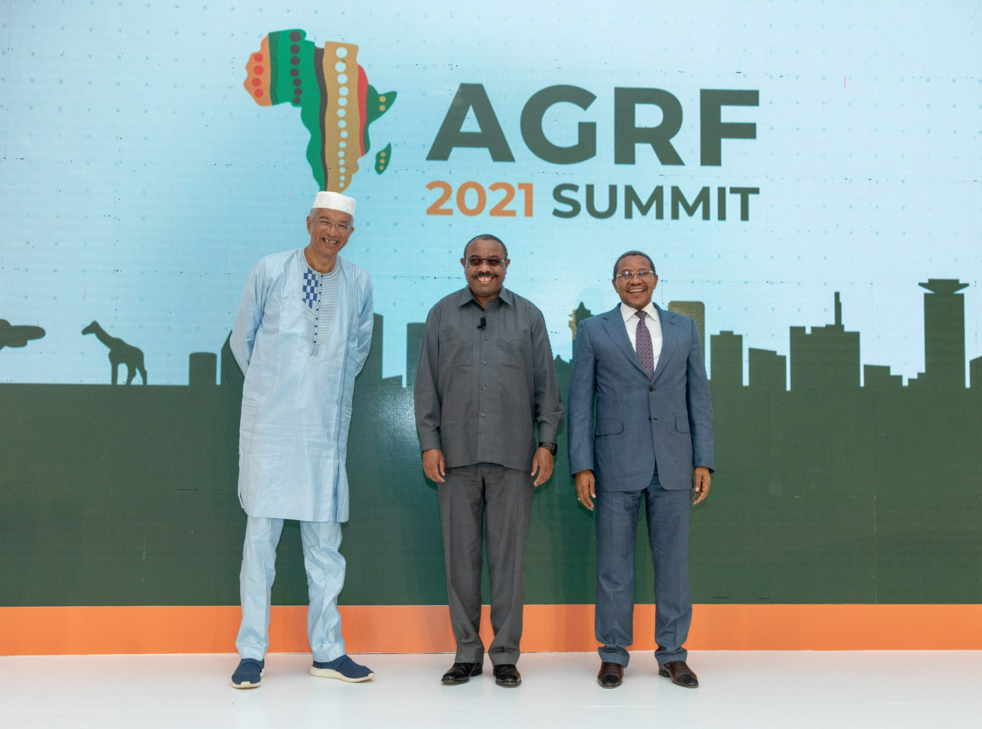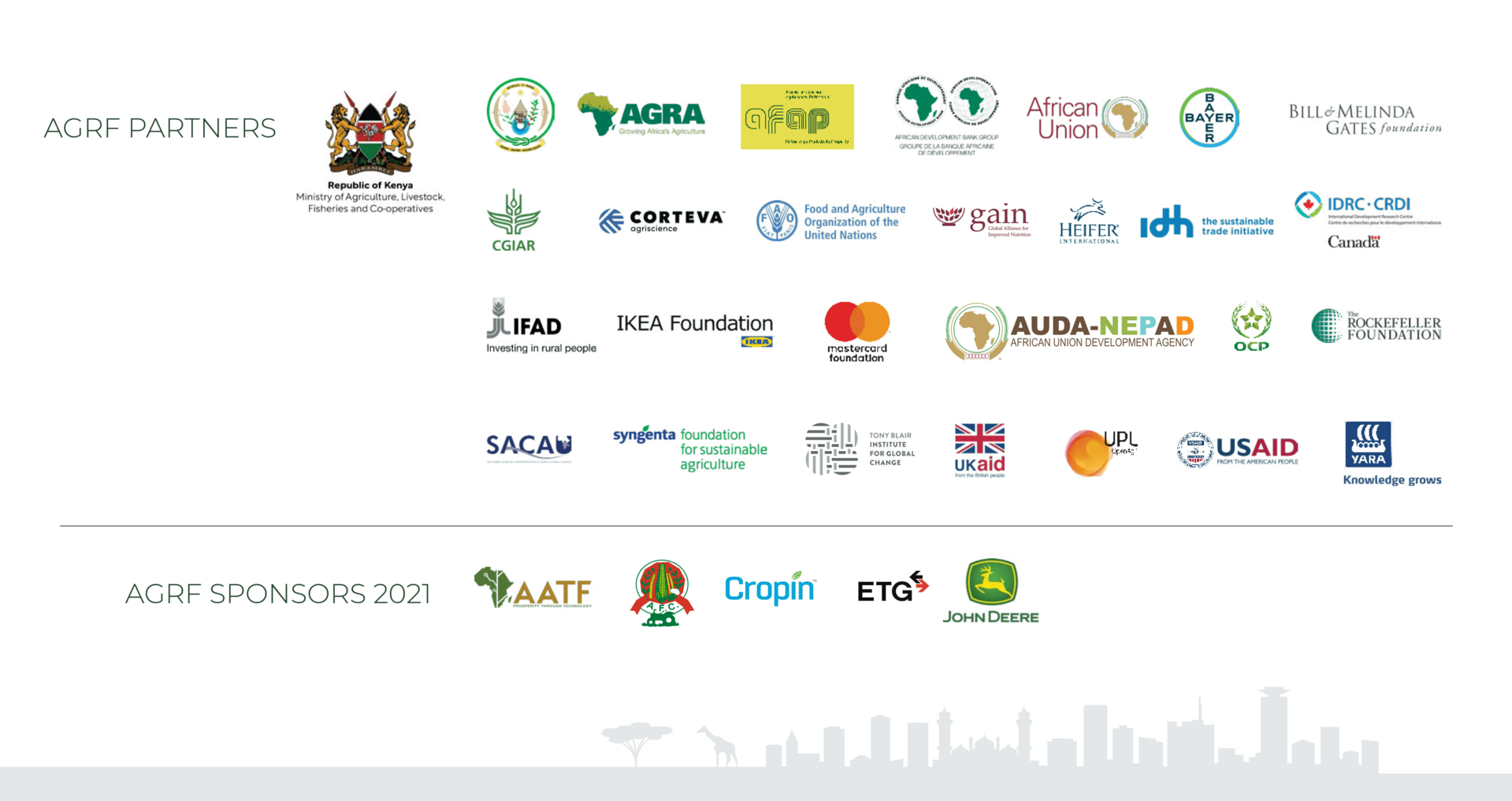Five former heads of state gathered at an
inaugural Elders’ Council to reflect on the status
of food systems in Africa. This special session was
convened by H.E. Hailemariam Dessalegn, Former
Prime Minister of Ethiopia.
In his remarks, H.E. Jakaya Kikwete, former
President of Tanzania urged African countries not
to opt for protectionism as it can be very inefficient.
Instead, countries should focus on increasing
production to prevent shortages.
H.E. Ellen Johnson Sirleaf, former President of
Liberia spoke on the role of women in food system
transformation. In Liberia women can now legally
own land and have been very resilient in farming.
There is need for commitments to remove barriers
that have prevented women from achieving their
goals.
“We all need to make commitment to remove
barriers that have prevented women from
achieving their goals.”
H.E. Ellen Johnson Sirleaf, Former President of Liberia
Benin’s former Prime Minister, H.E. Lionel Zinsou,
emphasized the need for financial resources to
flow to the agriculture sector. He also noted the
need to improve agriculture’s logistics, cold chain,
and infrastructure.
Former Nigeria President, H.E. Olusegun Obasanjo
provided insights on post conflict policy solutions
to meet agricultural targets. Agricultural policies
must be consistent and not influenced by
regime change. H.E Obasanjo urged government
ministries to work together and not in silos.










